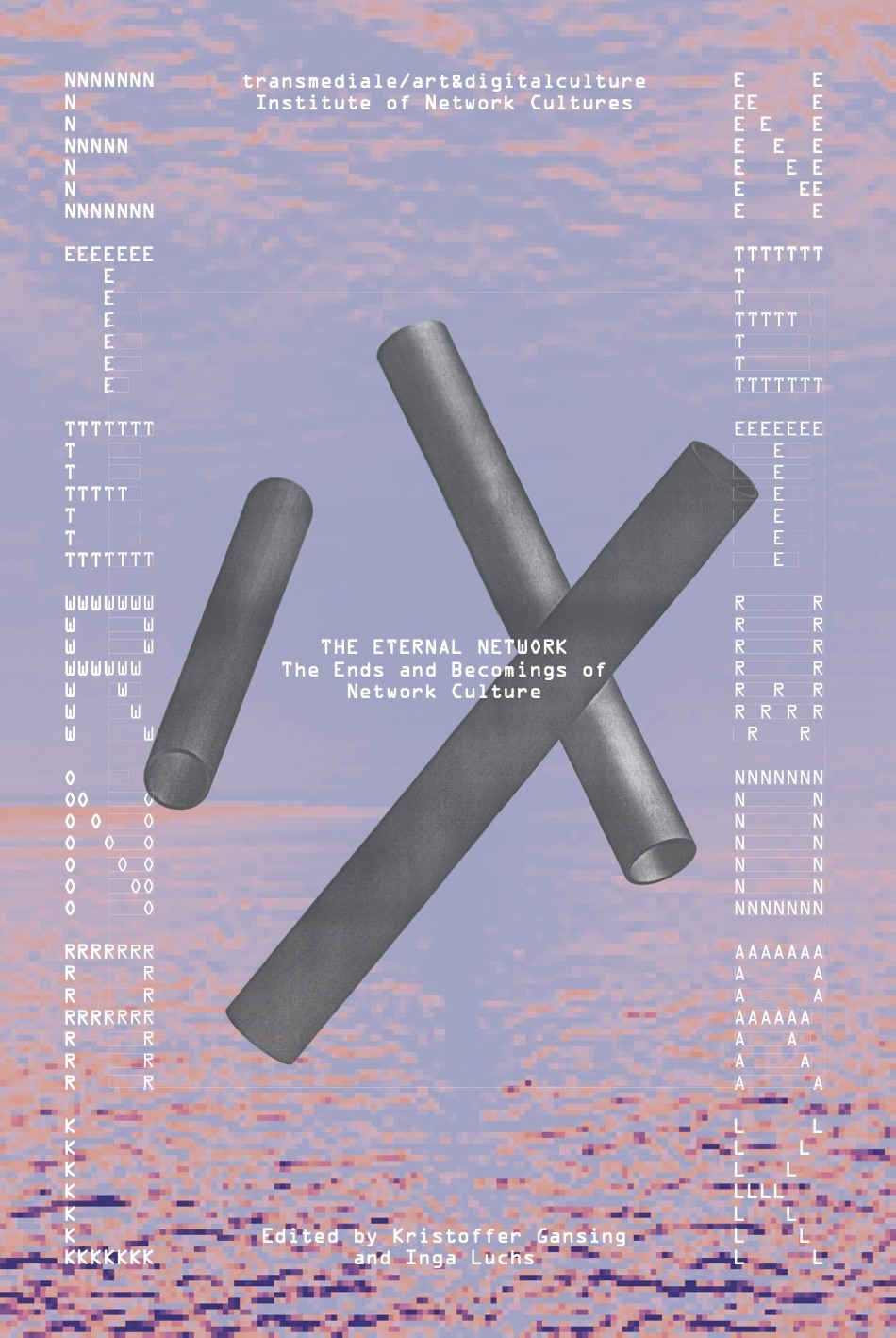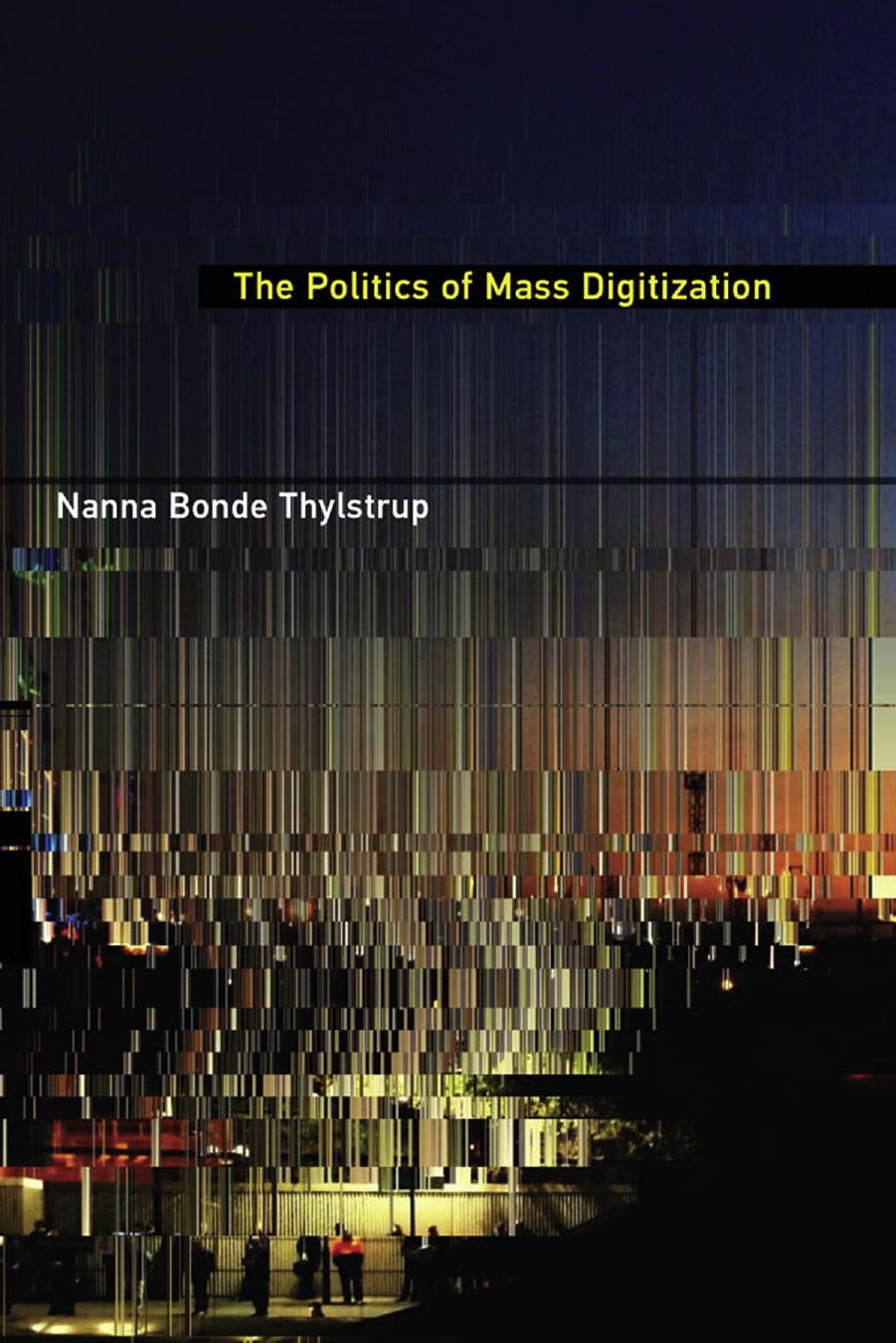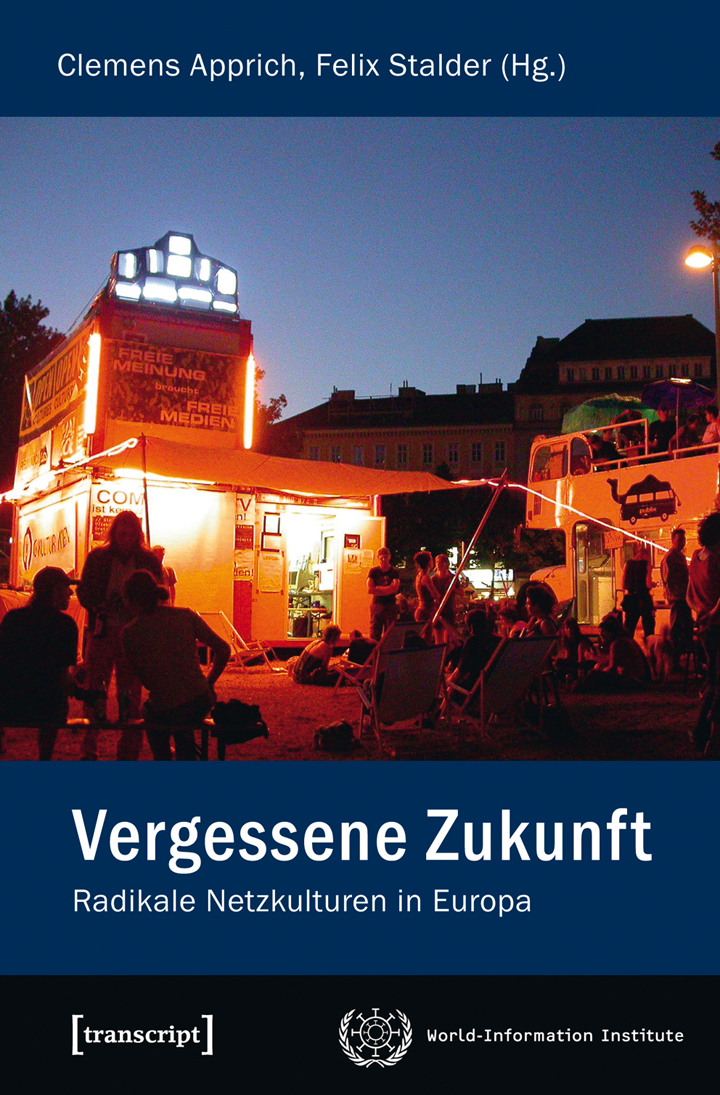Kristoffer Gansing, Inga Luchs (eds.): The Eternal Network: The Ends and Becomings of Network Culture (2020) [EN, DE]
Filed under book | Tags: · federated networks, floss, internet, net culture, network culture, networks

“‘The network is everlasting’ wrote Robert Filliou and George Brecht in 1967, a statement that, at first glance, still seems to be true of today’s world. Yet there are also signs that the omnipresence of networks is evolving into another reality. In recent times, the limits of networks rather than their endless possibilities have been brought into focus. Ongoing media debates about hate speech, fake news, and algorithmic bias swirl into a growing backlash against networks. Perhaps it is time to reconsider the contemporary reach and relevance of the network imaginary.
Accompanying transmediale 2020 End to End’s exhibition ‘The Eternal Network’, this collection gathers contributions from artists, activists, and theorists who engage with the question of the network anew. In referencing Filliou’s eternal notion, the exhibition and publication project closes the loop between pre- and post-internet imaginaries, opening up possible futures with and beyond networks. This calls many of the collection’s authors to turn to instances of independent and critical net cultures as historical points of inspiration for rethinking, reforming, or refuting networks in the present.”
Contributors: Clemens Apprich, Johanna Bruckner, Daphne Dragona, Kristoffer Gansing, Lorena Juan, Aay Liparoto, Geert Lovink, Alessandro Ludovico, Aymeric Mansoux, Rachel O’Dwyer, Luiza Prado de O. Martins, Roel Roscam Abbing, Femke Snelting, and Florian Wüst.
Publisher Institute of Network Cultures, Amsterdam, and transmediale e.V., Berlin, 2020
Creative Commons BY-NC-ND 4.0 International License
ISBN 9789492302465
145 pages
English: PDF, PDF (14 MB), EPUB, EPUB (18 MB), HTML (partial, added on 2020-7-16)
German: PDF, PDF (9 MB, added on 2020-12-4)
Nanna Bonde Thylstrup: The Politics of Mass Digitization (2018)
Filed under book | Tags: · book, cultural memory, digitisation, europeana, google, infrapolitics, infrastructure, knowledge, library, media infrastructure, monoskop, networks, shadow library, speed, ubuweb

“A new examination of mass digitization as an emerging sociopolitical and sociotechnical phenomenon that alters the politics of cultural memory.
Today, all of us with internet connections can access millions of digitized cultural artifacts from the comfort of our desks. Institutions and individuals add thousands of new cultural works to the digital sphere every day, creating new central nexuses of knowledge. How does this affect us politically and culturally? In this book, Nanna Bonde Thylstrup approaches mass digitization as an emerging sociopolitical and sociotechnical phenomenon, offering a new understanding of a defining concept of our time.
Arguing that digitization has become a global cultural political project, Thylstrup draws on case studies of different forms of mass digitization—including Google Books, Europeana, and the shadow libraries Monoskop, lib.ru, and Ubuweb—to suggest a different approach to the study of digital cultural memory archives. She constructs a new theoretical framework for understanding mass digitization that focuses on notions of assemblage, infrastructure, and infrapolitics. Mass digitization does not consist merely of neutral technical processes, Thylstrup argues, but of distinct subpolitical processes that give rise to new kinds of archives and new ways of interacting with the artifacts they contain. With this book, she offers important and timely guidance on how mass digitization alters the politics of cultural memory to impact our relationship with the past and with one another.”
Publisher MIT Press, 2018
ISBN 9780262039017, 026203901X
ix+200 pages
Reviews: Paul Conway (Journal of the Association for Information Science and Technology, 2019), Logan Brown (New Media & Society, 2019), Marc Kosciejew (Information & Culture, 2019), Lizzie Martin (Convergence, 2019).
Commentary: Seb Chan (2019), Bill Caraher (2019).
Clemens Apprich, Felix Stalder (eds.): Vergessene Zukunft: radikale Netzkulturen in Europa (2012) [German]
Filed under book | Tags: · internet, internet culture, media culture, net criticism, net culture, network culture, networks, web

“Mitte der 1990er Jahre ist in Europa eine vielfältige Netzkultur entstanden. Während die US-amerikanische Szene den Cyberspace als Raum jenseits der Politik imaginierte, waren die europäischen Netzpioniere darauf bedacht, die Möglichkeiten des Internet für neue politische und kulturelle Initiativen in der realen Gesellschaft zu nutzen.
Anhand von Zeitdokumenten, aktuellen Textbeiträgen und Interviews geht dieser Band erstmals auf die kritische Haltung europäischer Netzkulturen ein. Die Beiträge liefern so wichtige Referenzpunkte zur Gestaltung unserer techno-kulturellen Gegenwart jenseits von Facebook und Google.”
Publisher transcript, Bielefeld, 2012
Kultur- und Medientheorie series
ISBN 9783837619065, 3837619060
348 pages
via ResearchGate
Interview with editor: Vera Tollmann (Springerin, 2013).
Reviews: Verena Pizzini (kulturrisse, 2012), Leonhard Dobusch (Netzpolitik, 2012), Werner Reiter (The Gap, 2012), Martin Schmitt (sehepunkte, 2013).
Comment (0)
